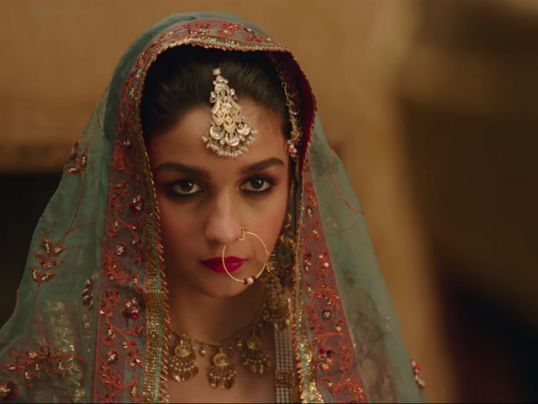
Raazi Is Magic: I Couldn't Leave Even After The Credits Rolled

This is not a review, because by now, most film enthusiasts have either seen the film or are planning to see it; such is the positive word-of-mouth and critical acclaim that Raazi has garnered. This is only an attempted laudation of how multi-layered is the thought penetration caused by Raazi. Firstly, it’s one of those rare films that makes all kinds of cine goers ‘Raazi’ - the ones looking for sheer entertainment, the ones looking for some food for thought with a powerful story, the ones looking for excellent use of film craft, the ones looking for upscale production values, and also the ones expecting cinema to play a higher role of initiating a relevant social conversation.
And this is where the line between the much acclaimed social movement between the70s till early 90s, called Parallel Cinema, and Mainstream Cinema gets blurry.
The parallel cinema movement of the country spearheaded by the likes of Satyajit Ray, Shyam Benegal, Ritvik Ghatak, Mrinal Sen and others has given us some unforgettable classics that are in a league of their own. To put Raazi in that league would be audacity on part of someone who is somewhere between an amateur and an expert on films. Old fanatics still swear by the exemplary works of parallel cinema, often brushing off today’s filmmakers and their work as frivolous. But one of the most striking features of parallel cinema was that the films were set in the social-political milieu of their times and raised important social questions. Raazi does that, effectively so. It presents a subaltern view to highlight patriotism. It’s a story of the past that powerfully nudges at your present. Even after 70 years of existence as separate nations, the India-Pakistan equation is incessantly stressed. Their strategic relations seldom go out-of-fashion when it comes to discussions in social-political-intellectual circles.
The enmity never runs out of steam. To the extent that it has become an integral part of our civilian consciousness.
We are forever fed by a brand of hyper-nationalism where the display of hatred towards another nation is a mark of love for one’s own. Where war and violence is a norm. Where a simple cricket match assumes a war-like status! Where most films, media, and popular culture together have etched the stereotypical image of ‘dushman’ in our minds. Raazi decimates this whole structure.
Your heart goes out to Sehmat’s Pakistani husband, Iqbal.
You feel the pain of betrayal that he feels. You feel empathetic towards your nation’s eternal enemy, and that is some audacious feeling for a “patriotic” Indian. That’s a feat, kudos to Meghna Gulzar for having achieved it. Raazi hits at the root of the conditioning that makes us vilify anything and everything to do with Pakistanis. Raazi is not an easy film to watch and digest, it rather leaves you feeling heavy and haunted.
Haunted by what sacrifices were made by many many unsung heroes to grant us the safety we enjoy, haunted by what wars have made of humans, haunted by what humanity has come to.
One will take time to process the simple, yet strong message of the film that love for one need not come at the cost of or only by hating the other. Love is not inversely proportional to hate, it can and should exist on its own. And peace can be a human emotion, not just a strategic decision.
Something rare happened when the end credits of the film rolled and I was slowly making my way out of the packed theatre.
The theatre, though packed was unusually not noisy. And an unusual thought hit me: I was reminded of my only friend from Pakistan and was enthused to reconnect with him. It’s a given that I never had any strong prejudices for him, otherwise, we wouldn’t have been friends. But this film helped me deal with the hidden and settled layers of prejudice for his Pakistani roots. What is the most interesting thing here is that this India-Pakistan friendship happened in China, of all places! I’m amused at this entwining of nation dynamics and human dynamics.
Oh Raazi, you’re a powerful one to say the least.